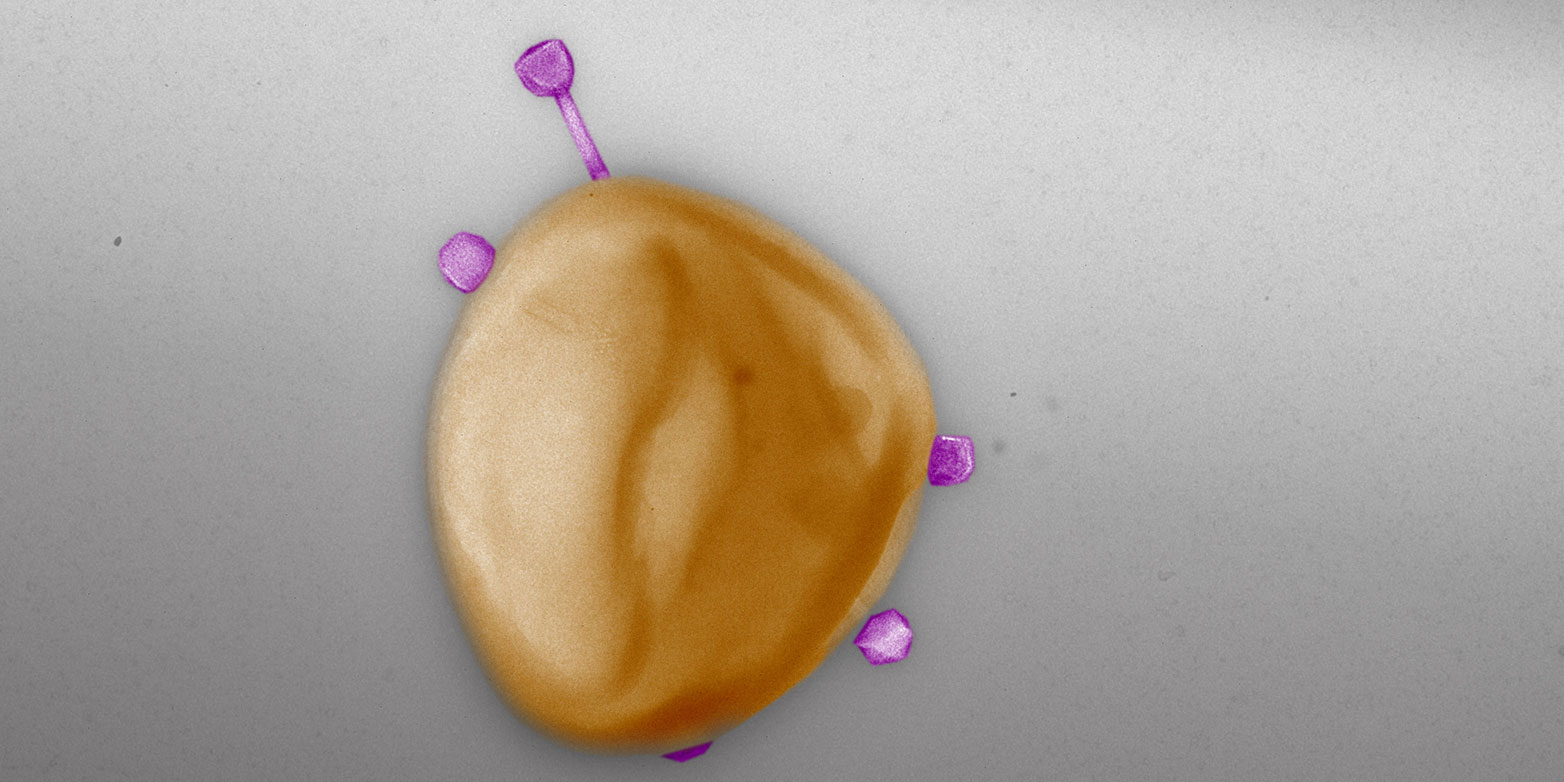Agents between good and evil

Viruses that infect bacteria could one day replace antibiotics because they precisely attack only specific pathogens. Researchers at ETH Zurich are now showing that this is not always the case. This new finding is important because bacterial viruses can transfer antibiotic resistance genes.
It is difficult to estimate from the lab experiments conducted to date how frequently phages actually transfer antibiotic resistance genes in nature. Nevertheless, the current study makes an assumption as to which of the investigated phages are particularly potent vectors.
For 28 of the 94 phages, the ETH researchers investigated how frequently they can take up a natural resistance gene while propagating the phages in a bacterium from the generated network. The uptake frequency varied from 1 in 100 particles to 1 in 10 million.
As the authors emphasise, the study findings are also significant with regard to fighting pathogenic bacteria in humans using phages. The discovery that phages can have a broad host range should be considered positive. This makes it easier to use them against numerous different bacteria.
However, when using phages in medicine, one must be careful that they don’t additionally act as vectors of antibiotic resistance genes. It is thus important to ensure that phages used in medicine have a propagation mechanism that functions as flawlessly as possible.